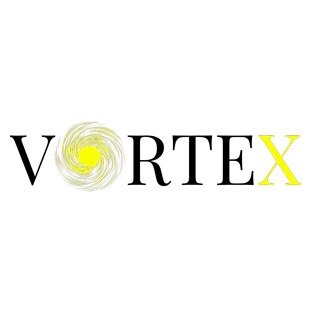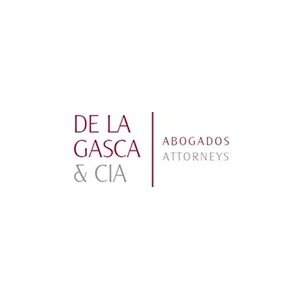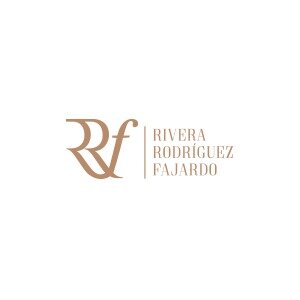Best Structured Finance Lawyers in El Salvador
Share your needs with us, get contacted by law firms.
Free. Takes 2 min.
Or refine your search by selecting a city:
List of the best lawyers in El Salvador
About Structured Finance Law in El Salvador
Structured finance is a specialized area within financial law that deals with complex financial instruments designed to meet unique risk and return objectives. In El Salvador, structured finance is increasingly significant as corporations, banks, and public sector entities seek innovative methods to raise capital and manage risk. Common instruments include asset-backed securities, collateralized debt obligations, and securitization of income-generating assets. These financial products are governed by specific regulations and require careful legal oversight to ensure compliance with local and international standards.
Why You May Need a Lawyer
Legal expertise is essential in structured finance transactions due to their complexity and the potential for significant financial risk. Here are common scenarios where legal assistance is crucial:
- Drafting and reviewing structured finance agreements, such as securitization contracts.
- Navigating regulatory requirements for issuing securities, including registration and disclosure obligations.
- Advising on risk management and compliance with anti-money laundering (AML) and know-your-customer (KYC) regulations.
- Dispute resolution related to structured finance products or breach of financial covenants.
- Legal structuring of new financial products or investment vehicles.
- Understanding cross-border structured finance deals involving foreign investors or institutions.
- Facilitating asset transfers and ensuring the proper legal separation of assets in structured transactions.
Local Laws Overview
El Salvador’s legal framework for structured finance is based on both general financial regulations and specific laws governing securities, banking, and capital markets. Key aspects include:
- Financial Supervision - The Superintendencia del Sistema Financiero (SSF) supervises all financial institutions and ensures compliance with relevant laws.
- Securities Law - The Ley del Mercado de Valores outlines requirements for public offerings, securities issuance, registration, disclosure, and investor protection.
- Banking Regulations - The Ley de Bancos sets the standards for bank participation in structured finance transactions and asset securitization.
- Anti-Money Laundering - Strict AML and KYC regulations apply to all structured finance activities to prevent financial crimes.
- Cross-Border Transactions - Foreign investment is regulated under specific investment and tax laws, and cross-border securitizations must comply with both local and international rules.
- Tax Considerations - Tax treatment of structured finance instruments can be complex and requires specialized advice to ensure compliance and efficiency.
- Consumer Protection - Investors and participants are protected through disclosure requirements, governance standards, and recourse mechanisms in case of disputes.
Frequently Asked Questions
What is structured finance?
Structured finance involves advanced financial instruments and strategies to finance assets, projects, or risks that do not fit within traditional lending or investment frameworks.
Who regulates structured finance transactions in El Salvador?
The Superintendencia del Sistema Financiero (SSF) and the Bolsa de Valores de El Salvador oversee structured finance transactions, including approvals and ongoing supervision.
Do I need to register a securitization transaction?
Yes, any securitization transaction involving public offerings or sale of securities must be registered with the relevant authorities, following the requirements of the Ley del Mercado de Valores.
Can foreign investors participate in structured finance deals?
Yes, but foreign participation is subject to additional regulatory scrutiny, tax considerations, and sometimes sector-specific restrictions. Legal advice is recommended for cross-border deals.
What are the typical risks in structured finance transactions?
Risks include credit risk, market risk, operational risk, legal and documentation risk, and counterparty risk, which should be carefully assessed and mitigated.
What legal documents are involved in structured finance?
Common documents include offering memoranda, indentures, trust agreements, servicing agreements, asset sale and purchase contracts, and regulatory filings.
How does El Salvador protect investors in structured finance deals?
Investor protection mechanisms include disclosure requirements, regulatory oversight, legal recourse for misrepresentation or fraud, and governance standards for issuers and intermediaries.
Are there specific tax considerations for structured finance?
Yes, taxation depends on the type of instrument, parties involved, and whether the transaction is domestic or cross-border. Legal tax advice should always be sought.
What happens if there is a default or dispute in a structured finance deal?
Disputes may be resolved through negotiation, mediation, arbitration, or litigation, depending on the contract and applicable law. Local courts and regulatory bodies may be involved.
How do I choose the right lawyer for structured finance matters?
Look for lawyers with extensive experience in financial law, a track record in structured finance transactions, and a solid understanding of both local and international financial regulations.
Additional Resources
- Superintendencia del Sistema Financiero (SSF) - Supervises financial institutions and oversees compliance with relevant laws.
- Bolsa de Valores de El Salvador - Provides information on securities markets and regulations.
- Ministerio de Hacienda (Ministry of Finance) - Useful for understanding tax considerations and policy.
- Salvadoran Banking Association (ABANSA) - Offers education and support within the banking sector.
- Bar Association of El Salvador (FEDAES) - Useful for locating qualified legal professionals in financial law.
Next Steps
If you are considering or involved in a structured finance transaction in El Salvador, it is essential to consult a qualified legal professional with specialized experience in financial law. Begin by outlining your needs and gathering all relevant documents related to the transaction. Research and select a lawyer or law firm with a strong background in structured finance and a clear understanding of local and international regulations. Initial consultations will help clarify your options and identify potential legal risks. Always ensure regular communication and don’t hesitate to request updates or explanations as your case progresses.
Lawzana helps you find the best lawyers and law firms in El Salvador through a curated and pre-screened list of qualified legal professionals. Our platform offers rankings and detailed profiles of attorneys and law firms, allowing you to compare based on practice areas, including Structured Finance, experience, and client feedback.
Each profile includes a description of the firm's areas of practice, client reviews, team members and partners, year of establishment, spoken languages, office locations, contact information, social media presence, and any published articles or resources. Most firms on our platform speak English and are experienced in both local and international legal matters.
Get a quote from top-rated law firms in El Salvador — quickly, securely, and without unnecessary hassle.
Disclaimer:
The information provided on this page is for general informational purposes only and does not constitute legal advice. While we strive to ensure the accuracy and relevance of the content, legal information may change over time, and interpretations of the law can vary. You should always consult with a qualified legal professional for advice specific to your situation.
We disclaim all liability for actions taken or not taken based on the content of this page. If you believe any information is incorrect or outdated, please contact us, and we will review and update it where appropriate.
Browse structured finance law firms by city in El Salvador
Refine your search by selecting a city.













